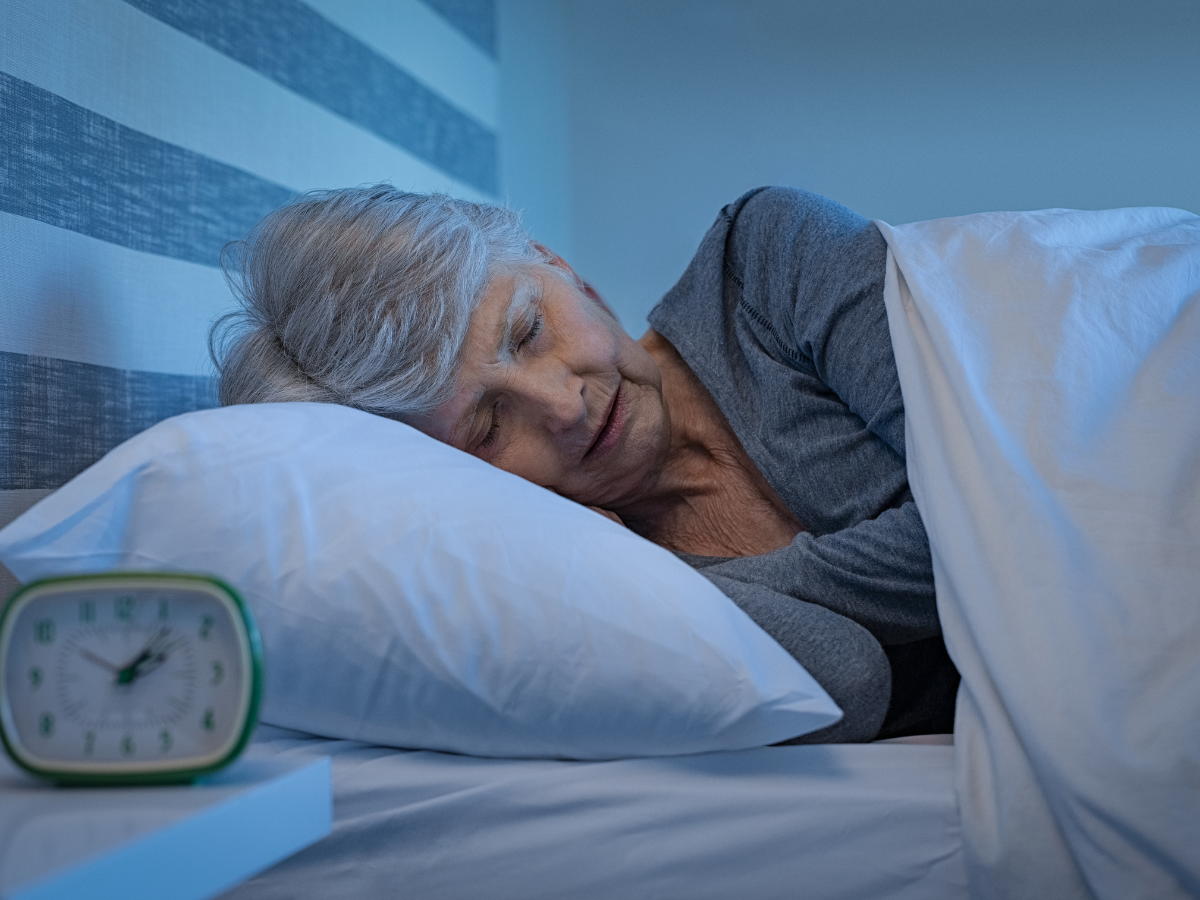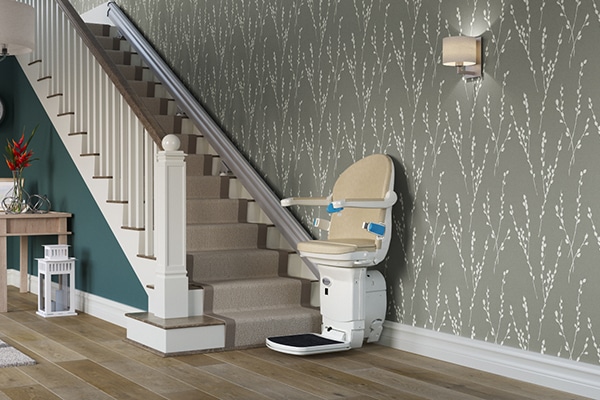Catching Z’s. Hitting the hay. Knocking out for the night.
These are all idioms that many of us use to simply say that we’re going to bed. The thing is going to sleep isn’t so easy for everyone. Although a good night’s sleep is essential for our overall health and well-being, seniors tend to find it difficult. There are various factors can disrupt sleep patterns and hinder seniors from getting the rest they need. What are the biggest culprits that prevent adequate sleep for seniors?
Chronic pain and discomfort.
Chronic pain conditions such as arthritis or back pain are common among seniors. As you can imagine, these issues can significantly impact sleep quality. Discomfort and achiness can make it challenging to find a comfortable sleeping position and stay asleep throughout the night. It’s crucial to address the underlying causes of pain and work with healthcare professionals to manage symptoms effectively.
Use support pillows, invest in a quality mattress or try relaxation techniques like gentle stretching. These are all known to aid with sleep. As well, taking a warm bath before bed can help alleviate discomfort and promote better sleep.
Sleep apnea.
Sleep apnea is a condition that is characterized by pauses in breathing during sleep. Unfortunately, it is prevalent among seniors. Sleep apnea can lead to frequent awakenings, loud snoring and daytime fatigue. If you suspect that you have this ailment, be sure to consult a healthcare professional for a diagnosis and appropriate treatment options. Oral appliances or lifestyle modifications like weight management can help to manage sleep apnea. As well, positional therapy can combat the issue and work to improve sleep quality.
Continuous Positive Airway Pressure (CPAP) therapy is also commonly used to treat sleep apnea. “A CPAP machine is a bedside device that delivers positive airway pressure and is used to treat obstructive sleep apnea (OSA) and other breathing problems,” explains Jay Summer and Dr. Anis Rehman for the Sleep Foundation, “A CPAP machine operates by pushing air through a tube into a sleeper’s nose, mouth, or both as they sleep. This air applies pressure to the airway, reducing the likelihood the airway will collapse and obstruct breathing.”
Medications.
Certain medications that are commonly prescribed to seniors can interfere with sleep patterns. Stimulant medications, diuretics, antidepressants and some heart medications may cause insomnia or disrupted sleep. If you are worried that your medications may be affecting your sleep, immediately consult your healthcare provider. They may adjust the dosage, change the timing of medication administration or recommend alternative options that have less impact on sleep.
On AARP.org, Dr. Armon B. Neel Jr. lists no less than ten meds that are known to cause insomnia. They are alpha-blockers, beta-blockers, corticosteroids, SSRI antidepressants, Angiotensin-converting enzyme (ACE) inhibitors, Angiotensin II-receptor blockers (ARBs), cholinesterase inhibitors, Second-generation (nonsedating) H1 antagonists, glucosamine/chondroitin and statins. If you have been prescribed any of these drugs, it’s certainly worth investigating whether or not they are interrupting your sleep.
Noisy sleeping environments.
Most people like peace and quiet at bedtime. External noise can be quite a significant sleep disruptor for seniors. Living in areas with high traffic, construction noise or noisy neighbours can make it challenging to knock out and stay in snooze mode.
Consider using earplugs or investing in a white noise machine to mask external sounds. If possible, make adjustments to your sleeping environment. Try using heavy curtains or soundproofing materials. They are known to minimize noise infiltration and create more peaceful atmospheres conducive to restful sleep.
RLS and PLMD.
Restless leg syndrome (RLS) and periodic limb movement disorder (PLMD) and two conditions that are known to cause difficulty falling asleep, frequent awakenings and a constant urge to move the legs.
As explained by Danielle Pacheco and Dr. Heather Wright for the Sleep Foundation, RLS causes “uncomfortable feelings in the legs, such as itching, prickling, pulling, or crawling. These sensations create an overwhelming urge to move the legs. People with RLS may walk, stretch, or shake their legs to achieve relief.”
Also for the Sleep Foundation, Logan Foley and Dr. Anis Rehman inform us that “people with PLMD experience repetitive jerking, cramping, or twitching of their lower limbs during sleep. These are known as periodic limb movements (PLMS) and happen every 5 to 90 seconds for up to an hour.” They go on to list incorporating more iron into your diet, reducing or eliminating your caffeine or alcohol intake, deep breathing exercises, meditation and yoga as possible treatments.
Stress and poor sleeping habits.
Not surprisingly, a negative mindset and hamper sleep quality. Worries about health, finances or personal relationships can certainly keep the mind racing at night. Engaging in stress-reduction practices such as meditation, deep breathing exercises or keeping a journal can help calm the mind before bed. Establishing a relaxing bedtime routine, such as reading a book or taking a warm bath can also signal the body to unwind and prepare for restful sleep.
Irregular sleep schedules, excessive napping during the day and stimulating activities close to bedtime can all hinder the ability to fall asleep and maintain a restful night. Establishing a consistent sleep schedule, creating a relaxing pre-bedtime routine and avoiding stimulating activities (such as screen time) before sleep can help signal your body that it’s time to unwind and prepare for restorative sleep.
It’s a whole new world after experiencing a good night’s sleep!
As a result, Advantage Home Health Solutions provides a variety of accessible bedroom solutions and many other home healthcare products. They are all designed to help you stay more comfortable and promote safety while in the bedroom. Our solutions include support pillows, support beds, adjustable beds and safety rails.
Our team makes it a point to always ensure that you have the complete picture to make an informed decision. You will know all of the possible options so you can choose which solution is best for you. To learn all about your options, please don’t hesitate to give us a call at 403-460-5438. You may also email us by filling out the form on our Contact page!




